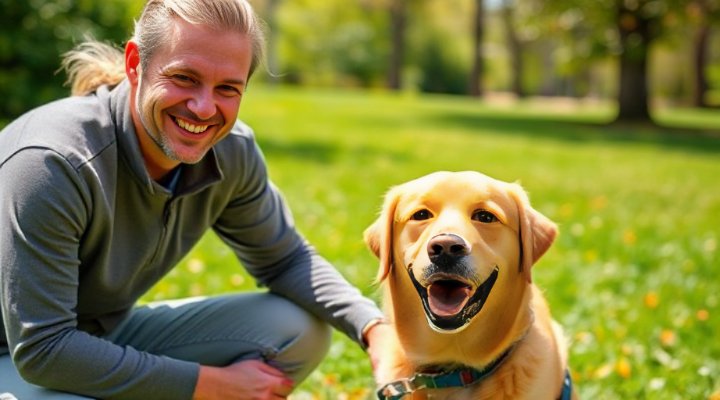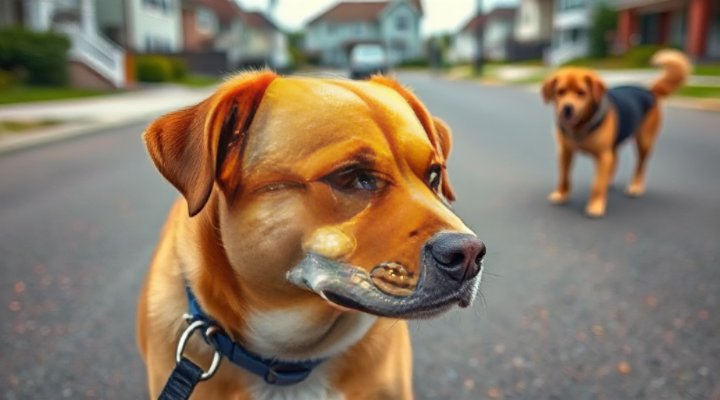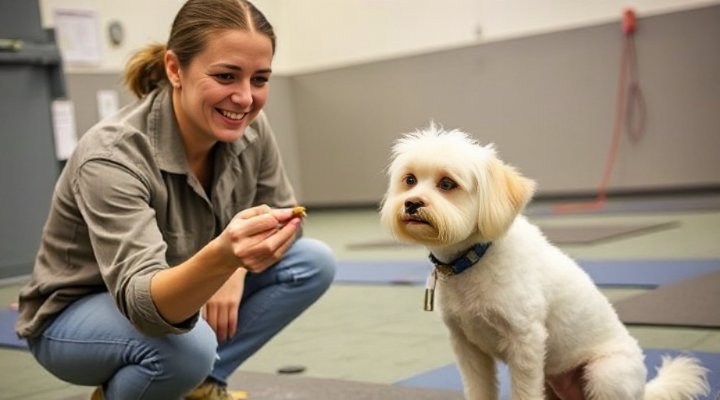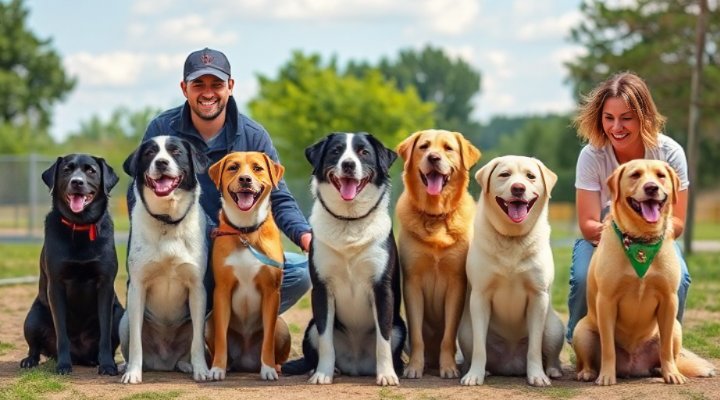If you’re searching for reactive dog training near me, you’re likely dealing with a dog that overreacts to certain triggers, such as other dogs, strangers, or loud noises. Reactive behavior can range from barking and lunging to whining and hiding. Fortunately, with the right training approach, your dog can learn to manage these reactions and become more confident in various situations.

Understanding Reactive Dog Behavior
Reactive behavior in dogs is often a response to fear, frustration, or overstimulation. For example, a dog might bark at other dogs because they feel threatened or unsure. In other words, reactivity is not the same as aggression, though it can sometimes escalate if not addressed. To clarify, a reactive dog is not necessarily a ‘bad’ dog—they simply need guidance to cope with their emotions.

Signs Your Dog Might Need Reactive Dog Training
Does your dog exhibit any of the following behaviors?
- Excessive barking or growling at other dogs or people
- Lunging or pulling on the leash when startled
- Whining, pacing, or hiding in stressful situations
If so, enrolling in a professional dog training program could be incredibly beneficial. Above all, early intervention can prevent these behaviors from becoming ingrained habits.

How to Find the Right Reactive Dog Trainer Near You
Finding a qualified trainer for reactive dog training near me requires some research. Here are a few steps to help you make the best choice:
- Look for certified trainers: Seek trainers with certifications from reputable organizations like the Certification Council for Professional Dog Trainers (CCPDT).
- Read reviews and testimonials: Check online reviews or ask for recommendations from local pet owners.
- Schedule a consultation: A good trainer will offer a preliminary session to assess your dog’s needs.
Meanwhile, you can also explore free dog training resources to supplement professional sessions.

What to Expect During Reactive Dog Training
Reactive dog training typically involves:
- Desensitization: Gradually exposing your dog to triggers in a controlled way.
- Counter-conditioning: Teaching your dog to associate triggers with positive experiences (like treats or praise).
- Obedience reinforcement: Strengthening basic commands to improve focus and control.
For instance, a trainer might start by having your dog observe another dog from a distance while rewarding calm behavior. Subsequently, as your dog becomes more comfortable, the distance can decrease.

Additional Tips for Managing Dog Reactivity at Home
While professional reactive dog training near me is essential, you can also support your dog’s progress at home:
- Stay calm: Dogs pick up on our emotions, so remaining relaxed can help your dog feel safer.
- Use high-value treats: Reward calm behavior with special treats your dog loves.
- Avoid punishment: Yelling or jerking the leash can increase anxiety and worsen reactivity.
Moreover, consider enrolling in a dog behavior training class to reinforce positive habits.
Final Thoughts
Reactive dog training near me is a journey, not a quick fix. With patience, consistency, and the right trainer, your dog can learn to navigate the world with confidence. Remember, every small improvement is a step in the right direction!
Related Keywords: reactive dog training, dog reactivity solutions, professional dog trainers, dog behavior modification, positive reinforcement training.
